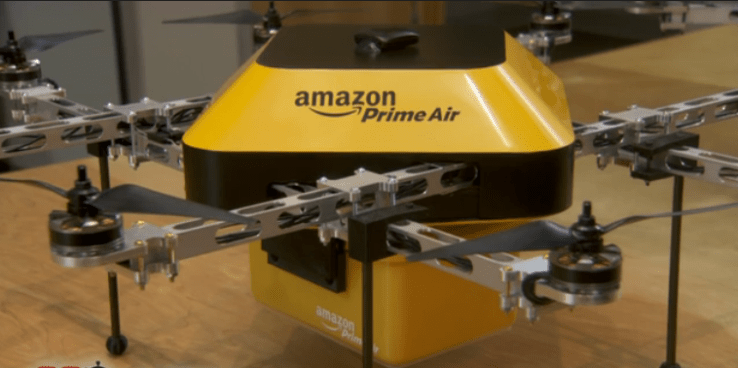 After being rebuffed by U.S. regulator reticence, Amazon is now
engaged in testing its drone delivery services in British Columbia, just
north of the U.S. border in Canada, on a piece of land dotted with oak
trees and firs, the Guardian reports.
The ecommerce company is using the test field to trial drones weighing
under 55 lbs carrying packages ranging up to 5 lbs, flying through
airspace of between 200 and 500 feet at speeds of up to 50 MPH.
After being rebuffed by U.S. regulator reticence, Amazon is now
engaged in testing its drone delivery services in British Columbia, just
north of the U.S. border in Canada, on a piece of land dotted with oak
trees and firs, the Guardian reports.
The ecommerce company is using the test field to trial drones weighing
under 55 lbs carrying packages ranging up to 5 lbs, flying through
airspace of between 200 and 500 feet at speeds of up to 50 MPH.It’s happening here, and not 2,000 ft to the south, because the U.S. Federal Aviation Authority, has been dragging its heels on green lighting testing in Washington on existing Amazon company property. Last week, the FAA did finally relent and approve experimental testing for Amazon, but the company responded (with no small amount of evident pique) by noting that the actual drone approved from testing was a prototype that has since become obsolete thanks to more recent technical advances.
In Canada, by contrast, Amazon endured only a single three-week licensing undertaking, after which it has received what the Guardian says is essentially “carte blanche” permissions regarding its full fleet of drones for testing. Of course, one could argue that given Canada’s much, much lower population density and less charged political climate, comparing the FAA’s responsibilities with those of its equivalent body in Transport Canada from the neighbor to the north is essentially comparing apples to oranges.
Drone companies, especially those focused on solving the hard problems surrounding machine learning and autonomy, are already springing up like weeds in Canadian innovation hubs like Waterloo and Toronto, so the FAA’s sluggishness may prove vitalizing to Canada’s emerging flying robot industry.